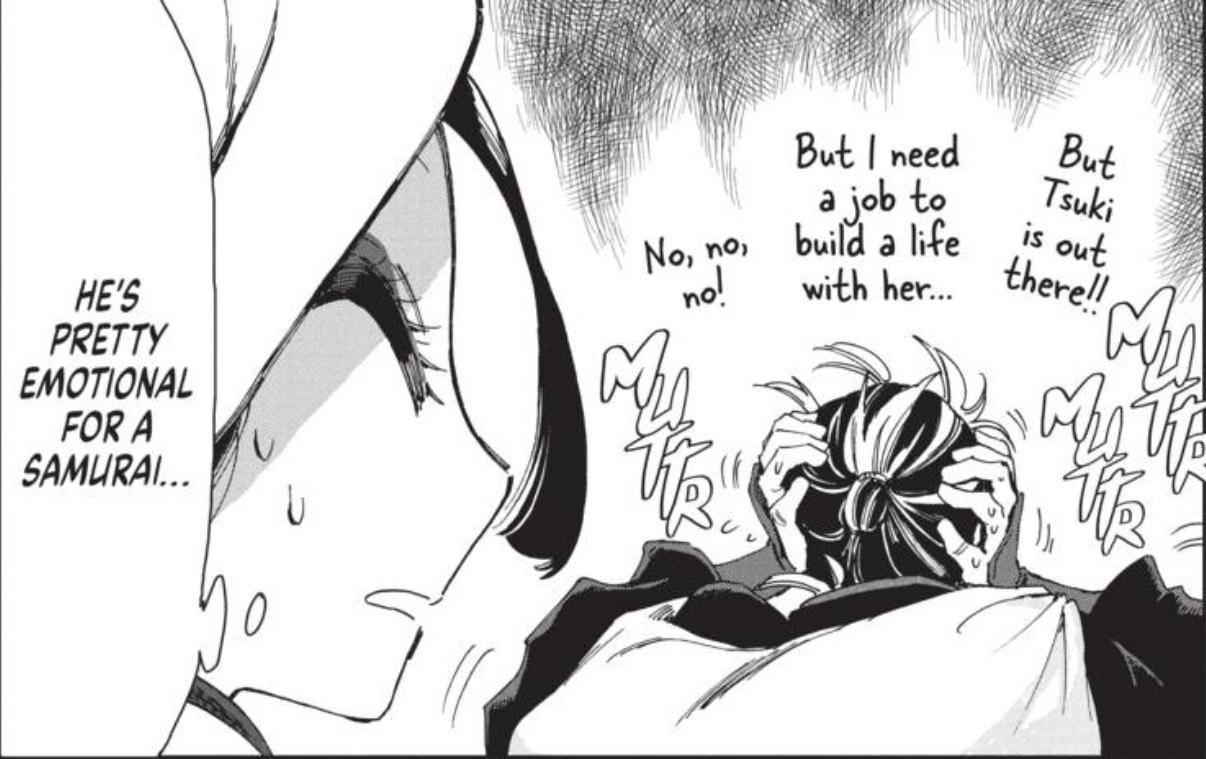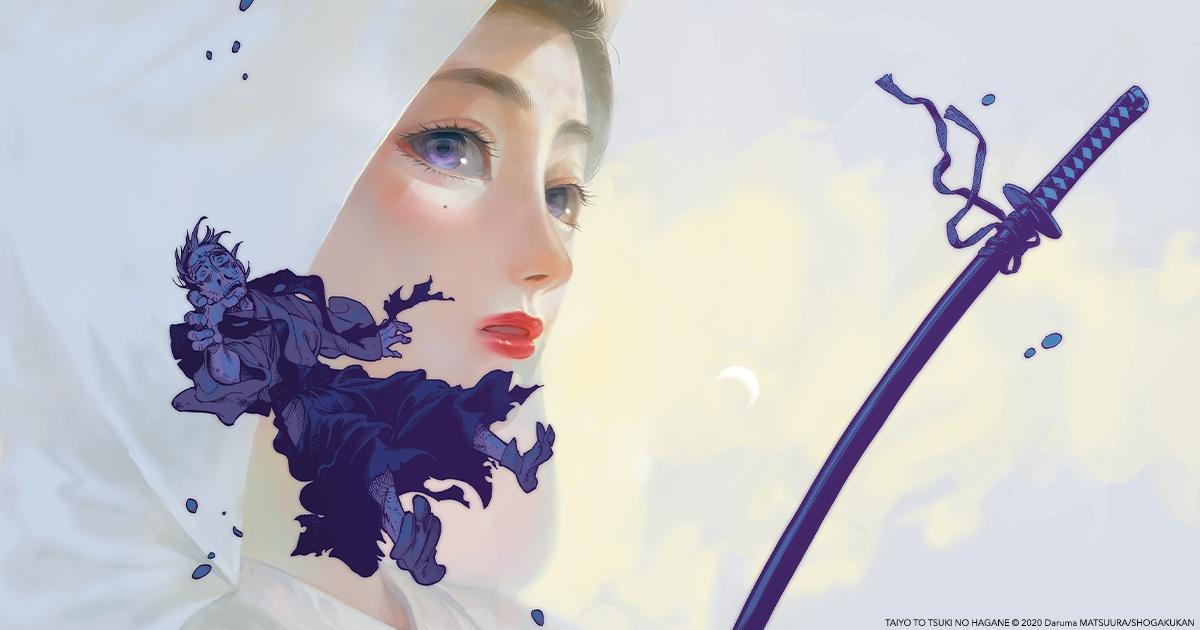Some samurai stories are about perfect warriors men of steel who never falter, never doubt. But Steel of the Celestial Shadows, now featured on ComicK, dares to tell a different tale. This is the story of Ryudo Konosuke, a man cursed to survive every sword strike, yet unable to wield a blade himself. It’s a twist on the classic samurai mythos one that replaces the familiar image of a flawless hero with someone deeply human, painfully flawed, and quietly extraordinary.
From the very first chapter, the manga turns expectations upside down. You think you’re about to read about a disgraced swordsman seeking redemption, only to be pulled into a mystery laced with romance, supernatural powers, and moral dilemmas. It’s equal parts action and intrigue, but at its heart, it’s a study of self-worth and the courage to keep living when you’d rather not.
The Samurai Who Cannot Die Ryudo’s Curse and Conflict
Ryudo’s “curse” is both his shield and his prison. Any blade that strikes him simply glances away, unable to pierce his skin. To most, this would be a gift but for a man who swore an oath to live and die as a samurai, it’s an unbearable burden. He cannot die an honorable death in battle, nor can he fulfill his role as a warrior, because he cannot bring himself to wield a sword.
What makes his character compelling is that his struggle is more than physical it’s emotional. He’s a man suffocating under the weight of expectation, his own and that of the world around him. The locals mock him, rumors spread, and the man once called “samurai” now lives in quiet shame. This self-loathing is so strong that at one point, he even seeks a fight, hoping for a fatal end only to discover, once again, that death will not take him.
It’s in this darkness that fate steps in, in the form of a mysterious woman named Otsuki. And from here, Ryudo’s journey begins to shift.

Otsuki The Woman Who Sees Beyond the Sword
Otsuki is more than just a love interest—she’s a catalyst. Her proposal to Ryudo, complete with a generous dowry, comes out of nowhere, and he has every reason to doubt her intentions. Yet she persists, not because of what he can do with a blade, but because of who he is beneath the scars and the shame.
Their early interactions are filled with hesitation. Ryudo cannot understand why someone so beautiful and kind would choose him. Otsuki, however, makes it clear: she does not measure a man by his skill with steel, but by the strength of his character. She knows about his “curse,” and to her, it’s not a flaw it’s part of the reason she chose him.
Through her gentle persistence, she chips away at the walls Ryudo has built around himself. She doesn’t rescue him with grand gestures, but with simple acts of kindness and unwavering belief in his worth.
Action with a Human Core Battles That Mean Something
When the action comes, it’s not just spectacle it’s personal. Ryudo’s first real moment of self-worth arrives when he must protect Otsuki from a man who had humiliated him before. This fight is more than a clash of steel; it’s a turning point.
The battle sequences are brisk and fluid, with a touch of shonen energy, but they carry emotional weight. Every strike Ryudo makes is charged with years of frustration and self-doubt. When he wins, it’s not just a victory for his pride it’s a step toward reclaiming the title of samurai, at least in his own eyes.
But this world isn’t content to let them rest. Just as peace seems possible, a new threat emerges one that wields powers far beyond mortal combat.
The Occult Twist Powers Beyond the Sword
The arrival of a mysterious stranger with the ability to control water shifts the story into supernatural territory. His threat is chilling: he will drain the very water from their bodies unless Otsuki comes with him. This isn’t a fight Ryudo can win with skill alone; it’s a battle against an enemy who plays by entirely different rules.
The reveal that Otsuki herself is connected to forces beyond Ryudo’s understanding adds layers of intrigue. She hints at abilities of her own, though we don’t yet know their full extent. Her parting words telling Ryudo to live on for her echo the themes of the series: survival not as a curse, but as a responsibility.
This blend of historical samurai drama with supernatural elements gives Steel of the Celestial Shadows its unique flavor. It’s not just about swords and honor it’s about fate, destiny, and the unseen forces that shape our lives.

Art That Shifts with Emotion
Visually, the series balances traditional shonen energy with moments of delicate detail. The heavy lines of the battle scenes create a sense of grit and impact, while the softer, more intricate renderings especially in panels featuring Otsuki add emotional warmth.
The use of visual contrast is deliberate. When the story turns tender, the art opens up, with lighter strokes and more space. When danger arrives, the lines tighten, the shadows deepen, and the panels feel almost claustrophobic. This dynamic use of style keeps the reader emotionally in sync with the narrative.
It’s a reminder that in manga, the art is not just a backdrop for the words it’s an active part of the storytelling, shaping the way we experience each scene.
A Story Worth Following to the End
Steel of the Celestial Shadows: A Samurai’s Fate is more than just a samurai tale it’s a layered narrative about identity, resilience, and the strange ways destiny unfolds. It begins with a man who sees his life as a burden and sets him on a path where survival becomes his greatest act of honor.
For ComicK readers, this is a series that rewards patience and emotional investment. It blends action with quiet moments, romance with mystery, and traditional themes with supernatural twists. By the final page, you’re left with more questions than answers and a deep desire to see what comes next.
